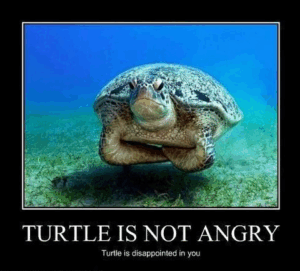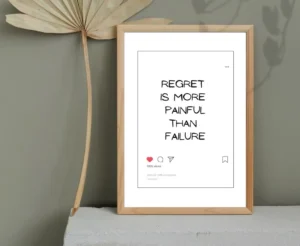How does a regular person afford a carnivore diet?
Crochet (now Carnivore) Gramma has had wonderful success with the carnivore way of eating. She’s lost a bunch of weight, become more physically active, and is (I believe) generally happier. Carnivore can work a lot of miracles in a person’s life! Unfortunately, it doesn’t usually make a person any richer, and she was wondering in one of her latest “walk with me” videos how she is going to afford to keep eating well. She feels like she’s been “priced out of paradise” and may have to start eating the boxed mac and cheese again. I know that feeling. If I were starving, I’d eat whatever was available! The consequences of that kind of food, though, I will avoid for as long as possible.
I have felt that same sinking feeling she does, as I’ve watched prices go higher and higher.
I have heard a lot of carnivore gurus say that eating good meat doesn’t cost more than the standard American diet, so you don’t really need to worry about the budget. That really seemed to be true for a long while. Perhaps it’s still true. I don’t know what the processed food prices look like, to be honest, so standard American dieters may be in just as dire straits as carnivores! But it sure seems like meat is going up in price a lot faster than the other stuff.
I’ve been grocery shopping on a strict budget my whole life, unlike probably most of the people who’ve popularized the carnivore diet. These are usually people who are not feeding large families, and also likely have more income (or more comfort using credit cards) than most of us do. Not to mention, nobody is sending me free steaks to promote on my YouTube channel. I’m not knocking them for that, and I’m grateful that people like Dr. Berry and Dr. Baker are doing well in life. They work their butts off, they’re brave and honest, and they’re frankly just better at everything than I am–than most of us are, in fact.
Us regular folks still have to find ways around the growing money problem.
People who are more financially comfortable likely don’t notice when the “cheap” box of hamburgers goes up by $5 overnight, or when the 12-count bag of meat sticks that you rely on for kids’ packed lunches is suddenly $2 more. Even worse, you’ll be opening a brand of canned chicken that had always just contained chicken, water, and salt, and a glance at the ingredients says that they’ve now adulterated it with food starch. Your yogurt that had been clean now has fruit pectin and some kind of bean gum in it. So now you have to find something new or quit that food entirely.
And it’s all of the foods, not just one item. Just a couple of dollars more per item. NBD, right?
When everything is increasing in price, and your income isn’t even inflation adjusted, this starts to really hurt. I left Wal-mart without my usual cheap box of hamburgers after seeing the hike in price. I won’t pay that much right now for those sub-par burgers. I will probably get over the sticker shock and do it anyway someday, and find some non-food place to cut corners. I’ve already canceled all of my little subscriptions and extra comforts. We’re running out of places to find another five or ten dollars!
We have an above-average income, but we also have seven kids still in the home. The oldest one doesn’t really eat at home much, so let’s say we’re feeding eight people right now, plus two meat-eating dogs. I am blessed that I could walk away from that box of hamburgers because I have a freezer full of beef that I can make into patties for myself. I only bought the boxed burgers for convenience, as we get a whole beef at a time, about 3 times a year. It looks like that’s going to have to be cut back, as well, as those prices just get higher, too. Still, it’s a sight better in both quality and price than the store beef!
What is happening here?
Dr. Shawn Baker posted this on YT a few days ago, and I think this increased demand has a lot to do with it. People are starting to wake up to the fact that the food pyramid we’ve been indoctrinated to was upside down.

Of course, it is nowhere near that simple. On the supply side, farmers are getting squeezed in ways that I’m not conversant enough to articulate. When I’ve picked up my beef from my farmer the last few times, she has been increasingly concerned about what is being intentionally done to the market to stop people from affording to eat meat. The push to turn everyone vegetarian is real. People who eat like this…

…have decided that you should eat beans and bugs. It’s expensive on purpose.
Every elite class in history has known that slaves need to be only strong enough to do what you want them to, and never strong enough to rise up. They want us to be fewer in number, dumber, and weaker, and then to die before we cost the medical and pension system very much.
Meat is elite food. The powerful are deliberately trying to make us too weak to do anything that would raise us closer to their status and make us harder to control.
This is not going to last forever. Revolutions are just as real as elite oppression. I just can’t say how long it will take, or by what means. Perhaps our elites will decide to loosen their grip to save their own skins as people get angrier. Maybe the market will sort itself out through clever ideas for getting around the imposed scarcity. Maybe Jesus will come back and we’ll see final justice in a New Heaven and New Earth.
In the meantime, we have to figure out how to afford to eat like human beings, not cattle. That means eating meat.
I have a few tips for my adopted Gramma, who I hope can find some use in this post. I’ve really gotten attached to this lady as she documents her journey on Youtube. Today I learned that she had social anxiety, too, so that’s another thing that we have in common that meat healed. Subscribe to her channel, or give a few dollars to her buy me a coffee fund. Hopefully, we can buy her some meat!
These are some of my habits that help me spend less on food, and some other ideas I don’t currently implement. I’ve ranked them in order from most to least plausible for regular folks:
Eat more of the less expensive meats. This is the most obvious one, of course. Chicken and pork cost less. This won’t be an option for people who have to avoid all but ruminant animals, but thankfully most people do just fine with other meats. Dr. Berry has said many times that you can be perfectly healthy on just eggs and bacon, and I think that’s largely true. But bacon is going up, too! We can rely on the chicken thighs and picnic shoulders for enough fat. Some of our family do not tolerate pork at all, so I will have other meats available for them when I make pork.
Eat a lot more eggs. Eggs prices have finally gone back down to mere Biden-era prices, after having more than doubled during a “bird flu” scare. It was a scam, of course. And the $13-something box that I buy is still $5 more than it used to be. I can buy the cheap eggs, thankfully. Most people do fine with the cheapest eggs, and the nutrition is still adequate in factory-farmed eggs, though not as good as appropriately raised chickens will give. Even with the volatile prices inherent in the egg market with these ridiculous policies for dealing with infectious diseases (again, the real goal is to drive us to plant-based eating), eggs remain the least expensive source of animal protein.
If you are eating eggs and trying to stay higher on fat content, you’ll want to dispose of most of the whites and eat more yolks. I often do one white to three yolks. Even throwing out the whites, eggs are a very good choice for inexpensive eating.
Shop the markdowns and sales. This is another very obvious one that we’re probably all already doing. I really hesitate to say this one out loud, though, lest someone who shops at my favorite grocery store sees it and decides to compete with me for the meat there.
Find out what days and times your local grocery store puts the marked down meats out. The stores are on a regular schedule, so if you can get to the bargain section at the same time as the manager, you’ll have a lot more to chose from. We have a particular brand of hotdog that we like, and that is acceptably clean, that was marked down to $2.50 a pack. I got a dozen packages that way! It is kind to leave some for other people, so I will often leave some good deals and come back the next day and only buy them out if nobody else wanted them. I’m pretty sure the cashiers at my favorite store know me as “Red Sticker Meat Lady”.
You may even want to find out what stores the wealthier people shop at–the ones you know you can’t afford–and scope out their deals. Every store has things that have to move fast. People with plenty of money don’t care as much about those red stickers, so you might get better deals there. I haven’t tried this, probably because I’m already shopping at a slightly higher-priced store due to our dietary needs.
Look for alternative sources of meat. If you have a freezer or two or an extra fridge, buying a whole, half, or quarter beef directly from the farmer is a much less expensive way to go. I only buy hamburgers at the store because I’m too lazy to make my own patties. Now that they’re so ridiculously expensive, I will probably make my own patties from my freezer beef. Hanging weight for my last one was $4.50/lb, I believe. That is more than dollar higher per pound than it was when I first started doing this several years ago, but it’s still a lot better than grocery store prices, and the meat is incomparably better. Store-bought steaks make me cry. I can’t even eat at steakhouses, I’m so spoiled by this meat.
I did the math with my take-home weight the last time we bought a cow, and because I take the marrow bones, heart, fat, and organs, I think I recall ending at about $6/lb for the whole thing. That is a lot to shell out all at once, of course. I understand how impossible that sounds for a lot of us. But if you can get ahead enough to buy just a quarter of an animal at a time, you’ll be doing much better in the long run.
We’ve got a friend who sells us duck eggs for $5 a dozen, just to get rid of them. You’ll have a hard time finding anything like that, I’m sure, but any local producer will be giving you better quality, and the prices can vary widely, so just look around.
Buy leaner cuts, which tend to be less expensive, and add fats. I’m not a fan of chicken breasts, pork loins, or any other lean cut of meat. But when they are on sale, I will buy them anyway. I can add bacon to pork loin or country ribs. I can add bacon to anything, actually. Chicken breasts can be made into something delicious with a cream sauce or cheese and bacon. I have an air fryer chicken tendies recipe that is delicious, and we use butter and mayonnaise for dipping to increase the fat content.
Canned meats are kinda OK. Dr. Ken Berry says you can get by just fine on canned meats like Vienna (pronounced: vy-ee-nee) sausages, and we do have a fair amount of canned meat in our lives. But I do find that these need to be less often than once a day, especially for the ones with a lot of salt and nitrates. Several times a week, though, can be a good amount to supplement with canned goods. Canned beef with the fat is fine every day, but it’s expensive. I keep that in the basement for emergency situations, and don’t bring it out much for regular meals. Canned fish of most kinds is also good on a daily basis. But the things that are lower in fat and higher in salts, like sausages, just don’t satisfy the same way. You also need to read the ingredients every single time you buy it. Manufacturers are quick to start adulterating the food with starches and sugars rather than raising the prices.
I will post some recipes for salmon or tuna patties that are carnivore or carnivore-ish, along with my chicken tenders.
Fast more. Take this advice only very carefully. I am not a fan of fasting for anyone over the age of about 45, nor for people who are already lean, nor for children, nor for women of childbearing age. I personally only fast for religious purposes. I’m happy to give my lean mass for prayer and supplication, but I’m not giving it up to make the number on the scale look better. You can achieve a lot of ketones and weight loss by fasting, but it’s not worth the detriment to your muscle mass, unless you are in a very strong state to begin with.
All the same, if you have plenty of fat to lose, your body will prioritize burning that up first, sparing your lean mass, and it will be a lot less harm than eating potatoes, I am sure. When money is tight, you could tighten your eating window down and only eat for 6 hours of the day instead of 8, do one meal a day, or you could skip every third or fourth day of eating entirely.
Scale it back to “keto”. For me and many other carnivores, this really is not an option. I have not found very many plant foods at all that don’t trigger either my auto-immune or anxiety/OCD problems. But most people who are on carnivore probably have a few things they can get away with. Low-carb berries, some green things like asparagus or cauliflower, or avocados and olives can fill in some gaps. It is a trope among carnivores that “plants are trying to kill you”, but in fact, some plants are pretty benign. Plants with fruits seem to even want us to eat them, to spread their seeds! But the sweet fruits we find in the stores are so over-bred for sugar content as to be dangerous for regular consumption.
It is mostly the good fruit oils–avocado and olive–that I would add back, to satisfy the need for fat, but it is my opinion that there are other plant foods that many people will not experience any real detriment from. If you need to make cauliflower “taters” to fill up your stomach a little more, or add some berries to your yogurt, you may find that to be a good, though not perfect, option.
You have to experiment yourself to find out what you tolerate, and (like me) that may end up being nothing. Honestly, I hesitate to add this as an option, because most of these “foods” just waste your body’s energy trying to digest them. But you will feel fuller for a little less money, perhaps, and it may be a short-term solution.
Get creative. Ask for beef for Christmas, or a freezer to keep your bulk and bargain buys cold. Use your tax returns to buy the side of beef you can’t save up for any other way. Finding new ways to bring in money is an option for some of us, I suppose. But most of us are pretty much already doing what we can. Cut corners other places. I’ve canceled all of my little $5 subscriptions, for instance. It’s hard to do that, though, because I know that other creators need my money, too! You could start a YouTube channel or a blog (doesn’t pay if you’re me, but some people might do well). Whatever you’re already good at, see if you can squeeze just a little income out of it.
Raise a few animals of your own. This is another one of limited use. You have to be in a place where you’re allowed and able to raise animals. You have to have time and energy to take care of them. And, really, backyard chickens can be a lot of trouble, let alone any other kind of animal you might try to raise. But many people do find they have a knack for raising their own eggs and meat, and if you are good at it, you will save money. I sadly never saved a dime with my backyard chickens, but I enjoyed them, and the eggs were much better. If you can free-range them, they cost very little indeed! But the predators around here made that impossible, so I was always out more for the feed than I would have been just buying all of my eggs at the store.
Hunting is another way to get fresh meat on the table for a lot less money. Again, this requires a certain skill-set and location, so not as many people can take advantage of it. I will probably be doing this eventually, but haven’t quite decided to yet. There’s a gal down the road here who says she would be happy to teach me to hunt!
I’m sure I have more to say on this subject, but I think this post is too long already. What do you do to keep food prices down? Or to make enough money to cover the increasing costs? Currently, I’m just using a buymeacoffee link. If you want to contribute to my gofundme for my last run, it is also still active. I will give a report on that race very soon, I’m sure!
Leave me a comment or something! I want to hear from you!











 But, you know what? I’m never sorry.
But, you know what? I’m never sorry.



